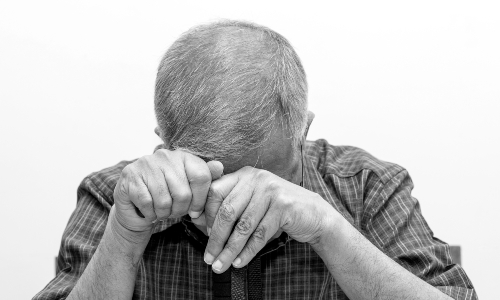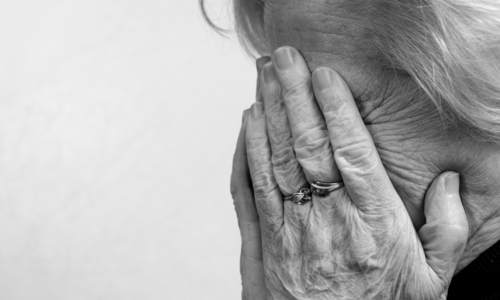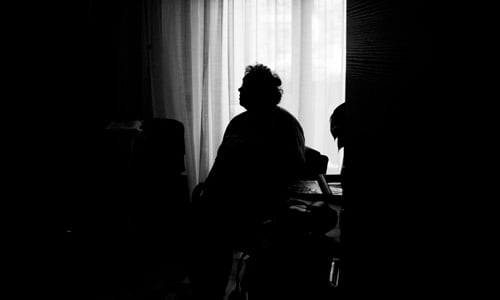We are currently marking the annual 16 Days of Activism Against Gender-based Violence, at the beginning of which the Office for National Statistics released new data on domestic abuse.
In that data, 3.2% of respondents aged 60-74 and 1.4% of those aged 75+ reported that they had experienced domestic abuse in the year spanning April 2022 to March 2023, which is equivalent to an estimated 375,000 people older victims of domestic abuse in England and Wales.
Of these victim survivors, 74,000 were aged 75 or older, and so were in the age group that the ONS didn’t ask about domestic abuse until Age UK – along with our brilliant campaigners – convinced them to lift their upper age limit on data collection back in 2020.
An underestimation?
We know that many older victims of domestic abuse don’t recognise themselves as such, so we worry that these ONS statistics might be underestimates. It is common for victim-survivors of domestic abuse to feel a sense of shame and self-blame that can be exacerbated as we age. The trauma of decades of control and abuse can erode self-esteem, making it hard to feel visible and make sense of what is happening.
Older victim-survivors of domestic abuse often don’t look like the stereotype portrayed by the media, which is often of a younger woman, perhaps with young children, being physically harmed by a partner. Older people are as diverse in their lives and experiences as younger people. Domestic abuse does not discriminate, and anyone can be affected.
Stereotypes can be a barrier to older people recognising themselves as victims, but also to professionals recognising the possibility of domestic abuse being present. Loss of memory and strokes may be perceived as ‘age related’ but could be the result of a head injury or non-fatal strangulation, according to SafeLives, which offers training in this area to professionals.
Who are these older victims?
Among older victims, 3 in 10 are male, and abusers include adult children and other family members, as well as partners. The data on domestic homicides tells us that older women are most at risk from their partners or former partners, while older men are most at risk from their adult family members, such as sons or grandsons.
The Domestic Abuse Act 2021 and accompanying statutory guidance recognises the needs for support services to ‘avoid making assumptions about a victim’s condition or health based on their age. For instance, injuries or mental health issues may be viewed as the result of a victim’s health and social care needs, without enquiries being made around domestic abuse.’
At Age UK we have contact with more than 1 million older people each year. We are hearing from increasing numbers of older people describing abusive behaviour by their partners and family members. It’s essential we can respond to these concerns and ensure when older people reach out, they have access to specialist support services.
We recognise that when an adult child or grandchild is causing an older person harm, the older person may not want that relationship to end, so reaching out for support can be an additional challenge. We are learning more about the complexities of child to parent abuse (CPA) and work closely with Parental Education Growth Support (PEGS) that can provide education and support to parents, guardians and professionals.
Taking important steps
Last year, we launched a partnership with Hourglass, a national charity dedicated to ending the abuse of older people. Age UK can signpost to the Hourglass 24-hour helpline or, with permission from the older person, refer directly to their Community Response Hubs, meaning more older people have access to specialist support.
Locally, there are some specialist domestic abuse services for older people that have the knowledge and skills to understand the specific needs of older victim-survivors, but there are only a few of these services.
A new role
Age UK recognises there is more to be done and we have appointed a dedicated domestic abuse lead who delivers training at Age UK and speaks externally at conferences and events, amplifying the voices of older victim-survivors of domestic abuse. This work educates professionals working with older people to ensure those working directly with older people can recognise the subtle signs that an older person may be being subjected to domestic abuse and respond appropriately.
We plan to extend this work more widely and collaborate with specialist organisations to embed this messaging and ensure older victim-survivors are visible.
Domestic abuse
Domestic abuse can take many forms. Do you feel like you're walking on eggshells? Are you worried about how someone might react? Do you feel controlled? If so, you're not alone - there is support available.





